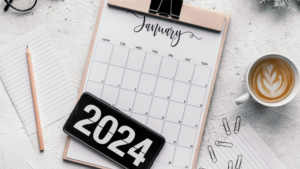7 Ways to Avoid Getting Trapped in a Debt Cycle

Kia ora, folks!
Struggling with debt can be tough, and it’s not uncommon to find yourself in a tough spot financially 💸. Whether it’s unexpected bills or just the rising cost of living in Aotearoa, it’s easy to feel like you’re stuck in a debt cycle with no way out 😖.
But don’t worry, we’ve got your back!
In this blog, we’ll share some practical tips and online resources to help you manage your finances and avoid unnecessary debt. We’ll also discuss what to do if you’re already in debt and can’t pay your bills, as well as the potential legal consequences of ignoring your debt obligations‼️.
We’ll show you how to create a realistic budget, set financial goals, and build an emergency fund. Plus, we’ll share some handy online tools and resources from the NZ Government that can help you get your finances under control 💪.
So, if you’re ready to take control of your finances and start building a brighter financial future, stick with us. By following our tips and using the online resources we share, you can break free from debt cycles and start on the path to new beginnings 🌿.
Key Takeaways 🔑
- Budgeting – Getting on top of your budget is important. There are several budgeting apps and tools out there to get you set up and on the right track with your finances.
- Avoid unnecessary debt – Prioritise your obligations (utility bills, rent etc) to avoid falling into debt. Prevention is better than the cure, financial experts can help you manage this if you’re struggling.
- Set financial goals that put you in control! – By getting on top of your finances you can enjoy life more with less financial stress. Get organised and enjoy.
- Build an emergency fund – Always have savings for a rainy day, save at least 3-6 months salary, and since Covid even 12 is recommend.
- Ask a professional for help – There is always someone experienced and ready to help. Whether it’s free government helplines, charities, financial advisors or loan companies.
- Consider debt consolidation loans – They are a tool to get you back in the green. Loan companies like ours are duty bound to act in accordance with the responsible lending code of New Zealand. So these loans are a tool to get you out of debt not into more.
Budgeting
In this section, we’ll cover everything you need to know about creating a realistic budget and setting financial goals, and we’ll even point you towards some handy online tools to help you get started.
First up, let’s talk about budgeting. Creating a budget might seem overwhelming, but it’s easier than you might think. A great resource to get started with is PocketSmith, a user-friendly budgeting tool that helps you track your expenses, set savings goals, and plan for the future. If you’re wanting a quick overview we also have a great planner!
Once you’ve got your budget in place, it’s time to set some financial goals. Do you want to pay off debt, build an emergency fund, or save up for a big purchase? MoneyHub is a fantastic online resource that offers a wealth of information on budgeting and saving money, as well as a range of helpful financial calculators to help you set and track your goals. There are 4 different packages including a FREE version, so there’s really no excuse! ✨
Once you’ve set out your budget you can then get friendly with automation! Set up direct debits that leave your account right after you get paid. Some banking apps also filter your income into different accounts, savings pots and investments. 💰
Get to know what resources are out there to help you and you’ll be well on your way to taking control of your finances and breaking free from the debt cycle. So, don’t wait any longer – start budgeting and setting financial goals today!
Avoiding Unnecessary Debt
Uh oh, you’re in debt and can’t pay your bills 🫠. It’s a tough spot to be in, but it’s not the end of the world. In this section, we’ll go over some practical steps you can take to get back on track.
- First things first, don’t ignore the problem. It won’t go away on its own, and it’s better to face it head-on. Check out Sorted.org.nz for advice on how to deal with debt collectors and negotiate payment plans with your creditors.
- Next, it’s time to prioritize your bills 💡. Rent, power, and food should come first, followed by other essentials like medical bills and car payments.
- If you’re struggling to make ends meet, you may be eligible for financial assistance from the government. The Govt.nz website has a helpful tool that can connect you with financial assistance programs in your area.
- Create a budget and stick to it – this will help you manage your money and avoid falling further into debt. Use tools like Alternate Finances’ Monthly Budget Planner, or PocketSmith or MoneyHub to help you budget and set financial goals.
- Finally, don’t be afraid to seek professional help from a financial advisor or debt counsellor. They can provide expert guidance on how to manage your finances and overcome your debt.
By taking these steps and seeking help when you need it, you can overcome your debt and get back on track. Remember, there’s no shame in asking for help – we all need it sometimes. So take a deep breath, stay calm, and start taking action today 😊.
Setting Financial Goals
Setting financial goals is a great way to avoid falling into debt. By having a clear idea of what you want to achieve, you can make more informed decisions about your spending and saving habits. Here are some tips to help you set SMART 🤓 financial goals:
- Specific: Be clear about what you want to achieve. Instead of saying “I want to save money,” say “I want to save $5,000 for a down payment on a house.”
- Measurable: Set a specific dollar amount or percentage to achieve.
- Achievable: Be realistic about what you can achieve. Consider your income and expenses when setting your goals.
- Relevant: Make sure your goals align with your values and long-term aspirations.
- Time-bound: Set a deadline for achieving your goals. This will help keep you accountable and motivated.
Online goal-setting tools like GoalGetter and ASB Bank’s Money Planner can help you create and track your financial goals. These tools allow you to set reminders, track your progress, and adjust your goals as needed.
By setting SMART financial goals and using online tools to track your progress, you can avoid falling into debt and achieve financial stability.
Building an Emergency Fund
Unexpected expenses can be a major source of financial stress. That’s why having an emergency fund is so important. This is a savings account specifically set up to cover unexpected expenses such as car repairs, medical bills, or job loss. Before Covid, those in the know (financial advisors, the govt) would usually recommend saving 3 months salary, but since 2020 the new recommendation is 6-12 months ☔️. Here are some tips for building an emergency fund:
- Set a savings goal: Aim to save at least three to six months’ worth of living expenses.
- Make savings automatic: Set up automatic transfers from your checking account to your emergency fund.
- Keep it accessible: Store your emergency fund in an instant access savings account so you can get your money when you need it. Keep it in a savings account though so it can gain even a little bit of interest!
- Online savings accounts like RaboDirect and Kiwibank offer high-interest rates and no fees, making them a great choice for building your emergency fund.
As financial expert Jane Bryant Quinn said, “In a world of uncertainty, creating an emergency fund is a necessity, not a luxury.” By building an emergency fund, you can avoid going into debt when unexpected expenses arise. If you don’t have your emergency fund in place, Alternate Finance can assist with temporary relief and spread the payments across 36-48 months, but of course, this is a personal emergency loan, that will increase your overall debt. At this time, you could consider debt consolidation and lower your overall interest rates.
Seeking Professional Help
When you’re in debt, it can be tough to know where to turn. Seeking professional help could be a game-changer. Not only can it take the stress out of dealing with your finances, but it can also help you avoid debt cycles in the future. A financial counselor or debt management service can offer tailored advice to help you get back on track 💪.
To find a reputable service, start by asking for recommendations from friends and family. You could also check out online resources such as Sorted or the government’s website. It’s important to choose a non-profit organization, which won’t charge you for their services.
Here are some helpful resources:
New Zealand Federation of Family Budgeting Services: https://www.familybudgeting.org.nz/
Citizens Advice Bureau: https://www.cab.org.nz/
Sorted: https://sorted.org.nz/guides/get-help-with-debt/
Ministry of Social Development: https://www.workandincome.govt.nz/eligibility/income-and-assets/index.html
Financial Markets Authority: https://www.fma.govt.nz/investors/debt-crisis/where-to-get-help/
MoneyTalks: https://www.moneytalks.co.nz/
What to Do If You’re Already in Debt
It’s not uncommon to find yourself in debt and struggling to pay your bills 😖, but there are ways to get help. If you’re in debt, the first step is to acknowledge the problem and take action. Contact your creditors and explain your situation, seek debt counseling, consider debt consolidation or negotiate a payment plan. The worst thing you can do is ignore your debt problems, as they can quickly spiral out of control.
One option is to contact your creditors and explain your situation. They may be willing to work with you to create a payment plan that fits your budget. Another option is to seek debt counselling from a reputable financial counsellor or debt management service. These professionals can help you create a plan to pay off your debts and get your finances back on track 💪.
There are also online resources available that can help you manage your debt. The Debt Repayment Calculator from Sorted.org.nz can help you create a plan to pay off your debts. The Financial Hardship Assistance tool from the NZ Government provides information on financial assistance and support available to those who are struggling with debt.
Remember, it’s important to seek help sooner rather than later. Ignoring your debt problems can make them worse over time ‼️. There are many online resources available to help you manage debt and get back on track. Additionally, consider using online resources like PocketSmith, MoneyHub, and glitter to help you manage your finances and set financial goals.
For further support, check out non-profit organizations like the New Zealand Federation of Family Budgeting Services, Citizens Advice Bureau, or Salvation Army. With the right tools and resources, you can overcome debt and achieve financial freedom ✨.
Legal Consequences of Unpaid Debt in New Zealand
Ignoring your debt obligations can have serious legal consequences that can significantly impact your financial future ‼️. For example, if you fail to pay your debts, creditors may take legal action against you. The legal actions they can take include:
Court Action – A creditor can take legal action against you by filing a claim in the court seeking to recover the unpaid debt. If the court finds in favor of the creditor, it can issue a court order instructing you to pay the debt, plus additional legal costs.
Debt Collectors – A creditor can use debt collectors to recover unpaid debts. Debt collectors can be quite persistent and may resort to tactics like harassment and intimidation to recover the debt 😣.
The potential consequences of legal action include:
Damage to Credit Score – Legal action can have a significant impact on your credit score, making it difficult for you to obtain credit in the future.
Wage Garnishment – If a creditor obtains a court order against you, they can seek to garnish your wages, meaning a portion of your paycheck will be deducted to pay off your debts.
Repossession of Assets – If you have secured debts like a car or a home loan, creditors may repossess your assets to recover their unpaid debt.
It’s essential to deal with legal action promptly. You can seek legal advice or negotiate with your creditors to avoid legal consequences. The Citizens Advice Bureau and the Community Law Manual are excellent online resources for learning more about your legal rights and options. Remember, ignoring your debt obligations can have serious legal consequences, so it’s crucial to take them seriously and seek help if needed to avoid legal action.
Conclusion
We hope the information above has been helpful for you in understanding debt and how to manage it. Remember, debt can happen to anyone and it’s important to take it seriously and seek help when needed.
Setting financial goals, building an emergency fund, and seeking professional help are all great ways to manage debt and get back on track. There are also a range of online resources and non-profit organizations available to help, so don’t hesitate to reach out for support.
But remember, ignoring your debt obligations can have serious consequences, such as legal action and damage to your credit score. It’s always better to take action sooner rather than later.
Ultimately, with patience, perseverance, and a little help, it’s possible to overcome debt and achieve financial freedom. So take a deep breath, make a plan, and take the first step toward a brighter financial future 🌿.


